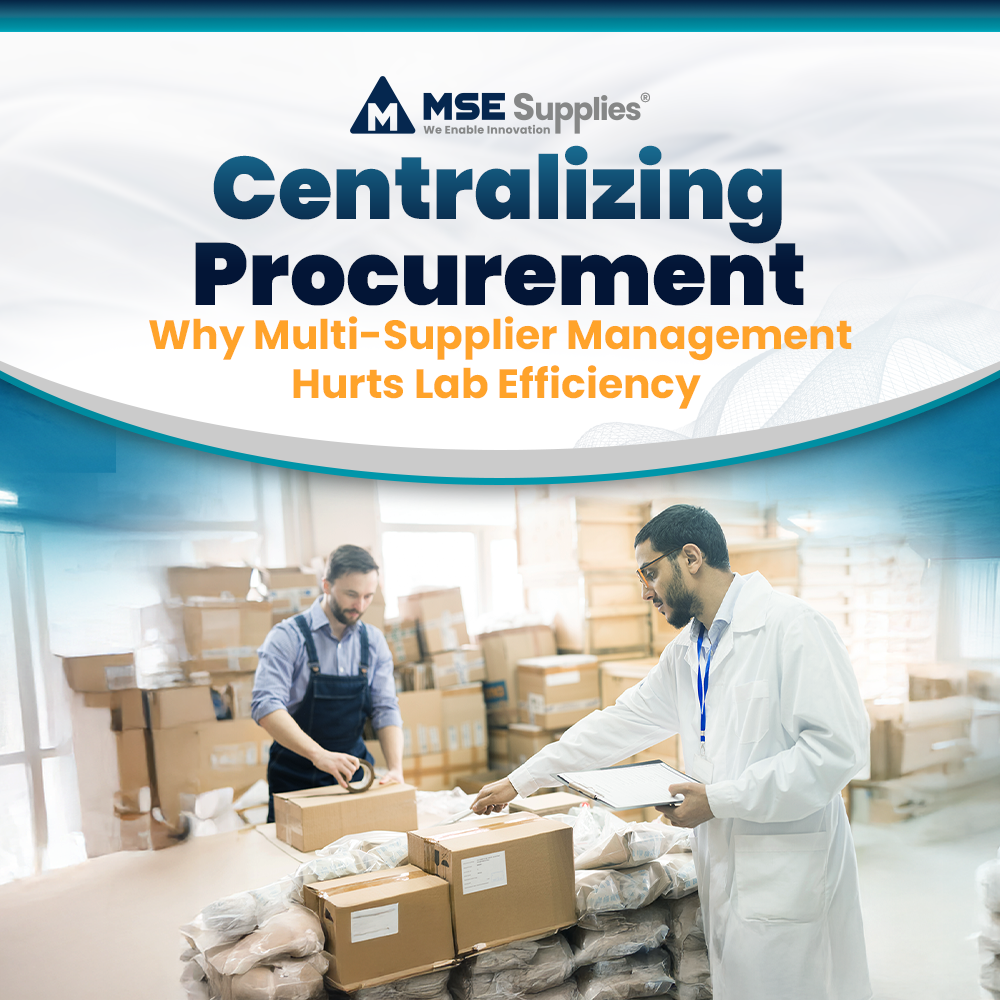Choosing the Right Laboratory Centrifuge
Posted by Product Management on
Browse the MS Supplies Catalog of Centrifuges Here!
Lab centrifuges are essential equipment in scientific and medical laboratories for separating substances based on density and particle size. There are various types of lab centrifuges designed for specific applications. Some common types include:
-
Microcentrifuges:
- Used for small volumes of samples (typically 0.2 to 2.0 mL).
- Common in molecular biology and biochemistry for DNA, RNA, and protein separations.
-
Refrigerated Centrifuges:
- Equipped with a cooling system to maintain low temperatures during centrifugation.
- Suitable for applications requiring temperature control, such as preserving sensitive biological samples.
-
High-Speed Centrifuges:
- Operate at higher speeds, enabling quick separations.
- Common in clinical laboratories for tasks like blood component separation.
-
Ultracentrifuges:
- Spin at extremely high speeds, often exceeding 100,000 rpm.
- Used for tasks like separating subcellular particles, studying macromolecules, and density gradient centrifugation.
-
Floor-Standing Centrifuges:
- Larger and more powerful, designed for higher sample capacities.
- Suitable for industrial and large-scale research applications.
-
Benchtop Centrifuges:
- Compact and can be placed on laboratory benches.
- Versatile and suitable for a wide range of applications.
-
Clinical Centrifuges:
- Specifically designed for clinical laboratories and medical settings.
- Used for tasks like blood sample processing and diagnostic procedures.
-
Preparative Centrifuges:
- Designed for large-scale sample preparation.
- Used in industries such as pharmaceuticals for separating and purifying compounds.
-
Analytical Ultracentrifuges:
- Used for studying the properties of macromolecules in solution.
- Provide information about molecular weight and shape.
-
Tabletop Centrifuges:
- Compact and portable.
- Commonly used in small laboratories or fieldwork.
These centrifuges vary in their speed, capacity, and applications, allowing researchers and professionals to choose the most suitable type for their specific needs.
Share this post
- Tags: Industry - Agriculture, Industry - Chemistry, Industry - Education, Industry - Food & Beverage, Industry - Industrial Process, Industry - Life Sciences, Industry - Material Science, Industry - Medical, Industry - Pharmaceuticals, Products - Laboratory Centrifuge



